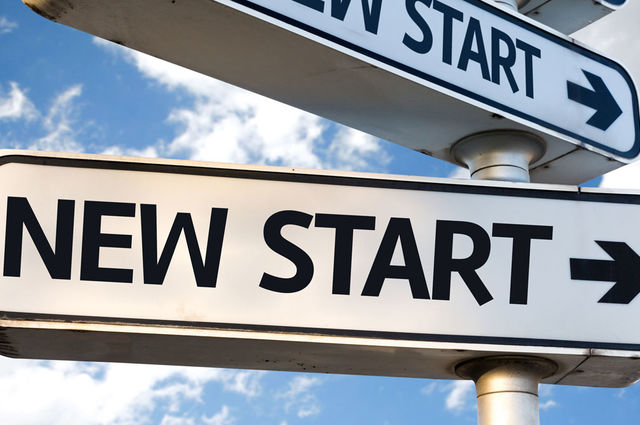A Post-Crisis Top-3 Digital Marketing Action Plan
11 experts shared their view
The global hospitality industry has been through every perceivable calamity over the past decades: earthquakes, tsunamis, tornados, major floods, terrorist attracts like 9/11, SARS, global recessions, epidemics and pandemics like SARS, MERSA, ZIKA, swine flu and now COVID-19. After each crisis, the industry came roaring back and I believe it will recover very quickly after the current COVID-19 crisis and will prosper like never before.
Naturally, each region and destination has had and will have its own decline and rebound curves as far as hotel occupancy, ADRs and RevPARs are concerned. Recovery post-COVID-19 will also be unique to each region, destination and property and will greatly depend on a) the underlying economic conditions in each region and destination, and b) the preparedness of each property for the post-crisis period.
This downtime of low hotel occupancies or property closures is the perfect time for post-crisis planning, digital marketing action plan development, product and marketing campaign ideations. The question to the digital marketing community is, which specific action-items SHOULD be included in a hotelier's Post-Crisis Top Three Digital Marketing Action Plan? In addition, please suggest one creative, OUTSIDE-THE BOX idea... something we have not seen yet in hotel digital marketing. Just an idea... big or small.

This World Panel Viewpoint is sponsored by apaleo GmbH
More information
Excellent post, Max. Thinking long term is hard right now and we can see that in the actions of many in the industry who are scrambling between laying off and furloughing employees, worrying about cash flow, trying to get refunds on media investments, and anticipating a rebound date that keeps moving.
Our mantra has been that now is the time to focus on strategic projects that we know are valuable, but have simply been too busy day-to-day to deal with. This really varies for everyone, but some action items we're working with clients on include:
- an overhaul of their email program for enhanced segmentation and personalization
- website enhancements focused on improving user experience (especially on mobile)
- deep analysis into loyalty programs and the online marketing and fulfillment of those programs
- development of rebound campaign strategies that will promote business in an effective and yet responsible way
None of this is earth-shattering, but it's important work that will pay dividends in the long run.
While it's tough to say when the current crisis will end, the important thing is that it will end. Here are a few ideas to help you when the time comes — and provide value right now, too:
- Think "Backyard and Bundle." While it's possible that the economy might come roaring back, given the larger economic effects and potential for lingering concern on the part of guests, it's also likely that they may want to stay closer to home, have less to spend, or simply want to keep a little money in their pocket for the next big shock to the system. There's a clear downside to discounting your product. But you should also think about offering packages or promotions that allow guests to get the most bang for their buck, especially with drive and local customers. Focus on value-adds in your promotions and offers that help you hold rate, but show clear benefit to the guest. And target those first to the people for whom your property is closest to home. It's also likely that guests will want to spend time with their families and friends, many of whom they've been forced to isolate away from throughout this crisis. Consider offers that encourage and reward multi-generational travel, girlfriends' getaways, etc. And it will be time to test geo-targeted mobile offers to increase share of wallet for folks already in market once they're traveling again.
- Sell your destination first. Of course, you don't want to think only of the "backyard and bundle" crowd. You also need to cast a wider net. This is a little bit "old school" or "Hospitality Marketing 101," but before guests can choose your hotel, they need to choose your destination. Partner with other local businesses — all of whom will also be looking to dig out — to create videos, content, and offers to help attract travelers to your destination. OTAs have invested heavily in content over the last few years. Don't let them reap the rewards. Instead, demonstrate directly why your destination in special and the right choice for guests venturing out again.
- Keep meta and paid search running later… and right now. Meta and paid search spend automatically declines as demand declines. The single biggest problem at the moment it's that there's limited demand. Shutting off meta and paid search removes you from consideration among anyone even thinking of travel. Or those looking in advance of when they can travel again. It also may hurt your ranking relative to those who've consistently kept their media running even at the lower levels that match current demand. Waiting until the downturn ends might put you at a disadvantage to those who've kept the lights on during the current period… and takes you out of consideration of anyone who needs to travel right now.
As for a big idea: There are two key learnings to take away from COVID-19. One, in times of crisis, guests appreciate flexibility in their plans. Two, hotels depend heavily on revenue that only exists if people are able to come to your building. How can you use digital to integrate those two realities and eliminate risks for both travelers and your bottom line? Can you look at subscription models for your rooms or meeting space to offer guests both flexibility and cost controls, while generating consistent revenue for your property? Amazon Prime, Stitch Fix, Fabletics, and lots of other innovators are using digital subscriptions to drive revenue and loyalty among their customers. Is it time for hotels to learn the lessons from the coronavirus and do the same for guests? Additionally, is it time for hotels to monetize public spaces for virtual events and tours? How can you use digital to provide guests a great experience even when they're not on property?
COVID-19 won't last. And hotels who take action now have greater opportunities to succeed when the eventual rebound occurs. Don't wait for that moment. Take advantage of the time you have now to rethink how you connect with guests… and position yourself for greater success in a post-corona marketplace.
This is the time to do the big stuff, the stuff you never thought you would have time for, the stuff you thought would be too disruptive to daily business to do, or that would distract too much from too many other things. What do I mean by this? Here are a few of the 'big' things to consider;
'Big thing' #1/CRM deep dive -- Historical review of all sources of business. From where? when? Who were they? Why did the travel? How often? How many? What were there persona's, for what travel purpose? what time frame did these persona's come to us and stay? Then construct a forward recovery plan taking the detailed data as to future travel targeting.
Which brings us to 'big thing' #2/ What channels did we gather this business from? -- What were the sources for this business, (by business cycle) the volume for each? the conversions for each? What is the cost per acquisition for each? -- Why? Because if you know where your guest is coming from, why they would be interested to be with you, when they want to come, how they found you, what it cost to book them, you can spend only on the channels you need at the amount that works.
And 'big thing' #3/ content development -- Your's and what your competitors are in comparison. more....?
In Quebec, Canada, we are still in the early stages of this crisis, expected to peak at some point in mid-April. So the very first step to take is to acknowledge this fact and plan for post-crisis action plan set to begin somewhere in June. Here are the three action items I would prioritize until then:
- New images: No matter when your last photoshoot was done for your property or travel brands, consumer behaviors will have shifted during this crisis. You will want to avoid pictures of a crowded restaurant or buffet services, for example. Groups of friends having a blast by the pool? Maybe better to hold off these pics for later, when the virus threat has vanished.
- Update your website: Images are a part of this effort but you will also want to reassess text and user experience on your website. It's safe to assume travelers will have higher concerns for hygiene and cleanliness, so this will need to be stressed clearly on various sections of your website and digital platforms alike (social media, newsletters, brochures, etc.).
- Target market: Don't assume your target audience coming out of this crisis will be the same as the audiences you previously had in mind. Out-of-town business meetings may take a while to come back, especially as many people discover the virtues of remote working and zoom conferences. Focus on rubber tire markets and local efforts to get the wheels spinning in the early stages of recovery.
An outside-the-box idea? How about a "locals-only" promotion or deal, targeting folks from the city you work and live in. Make sure to package it in a way that includes outdoor activities, shows and any entertainment that was forbidden during confinement!
Developing the property post-crisis strategy must begin now!
1. Don't Abandon Your Customers! Don't panic and shut down all of your property's marketing and PR spend and efforts, this will hurt your property in the long run.
* If your property is still open, work with your marketing agency and PR firm to communicate to your customers - past guests, loyal customers, group planners, tour operators, distribution partners, etc. - who are the guests currently staying at the property. Are you providing free or discounted accommodations to nurses, doctors, and other medical personnel? To police officers, firefighters, grocery store workers, etc.? All of this provides a tremendous brand value to your property and must be communicated in real-time.
* Even if your property is shut down due to local mandates, abandoning your customers is a huge mistake. You should continue to communicate to these customers, provide clarity and information about the property's and destination's current situation, inform them how you are taking care of your employees and assure them that the property will be ready and able to open and function as soon as the mandate is lifted.
* The crisis will be over sooner or later and hoteliers would once again start chasing these exact customers: corporate and leisure transients, SMERF organizers, tour operators, meeting and corporate group planners, etc. Staying in touch with these customers during the crisis will go a long way in the post-crisis rebound.
2. Refocus Your Revenue Management Strategy: Analyze carefully your property's drive-in and short-haul feeder markets and identify the ones that matter. Short-haul feeder markets can save the day in the immediate post-crisis period. People are better informed about nearby destinations and can better assess the post-coronavirus situation there, and hopefully, resume traveling there if they believe the situation is under control. Focusing your marketing efforts on your property's drive-in/short-haul feeder markets in the post-crisis period makes all the sense.
3. Overhaul Your Sales Strategy: It is time to relearn how to sell on value vs selling on rate alone. Do not discount! Discounting smells of desperation and does not generate extra demand. Instead, try to think like the guests you would like to bring back to the property. How do they feel, what are the things they need most in the post-COVID-19 period? To destress, have fun and entertainment, exercise, enjoy good food. This is the time to provide real value, not meaningless discounts.
* Come up with de-stressing spa packages, meditative treatments, gym and swimming pool staycation packages, dance and yoga classes, weekend entertainment specials, family fun getaways, special occasion packages, gourmet F&B packages, etc. Now is the time to introduce live music in the hotel lobby, at the restaurant, in the night club.
* Relaunch your property marketing campaigns at 2x the pre-crisis levels, including omnichannel campaigns, SEM, SEO, GDN, GHA, CRM marketing campaigns, social media, content marketing, and PR, etc., geo-targeting the important drive-in and short-haul markets.
And finally, are you using the current downtime wisely for employee online training, reacquainting with the hotel product and amenities, professional development via online courses and collaboration tools? This is the perfect time to show your employees that you care, to instill teamwork, and come out if the crisis with a stronger and greatly motivated team.
First of all, it's too easy talking. We have a great buzz of people talking these times while it's difficult to extrapolate real value from all these free opinions. I'm writing from north Italy and I do it respecting hotel businesses that had to shut down, maybe forever. Anyhow, I agree with the positive approach and I think that the pain we're living is the biggest opportunity our industry ever had.
Three Digital Marketing actions:
1) Forget the easy path. Forget that you can find here or elsewhere a magic tool, a magic word or a simple solution for a "kind of complex problem". We're not talking about rocket science but I see too much the hotel industry executives stop at the first incidence or math relation that comes on the way.
➡ Start connecting the data between revenue management and digital marketing.
Find your way to do it, even in an easy approach but please match those prices with demand data from market analysis (aka "pressure on destination" KPI from suppliers as Hq Plus or similar).
➡ Once done, make the digital marketing acquisition costs DYNAMIC.
Cac, Cpa, Cps you name it, but understand how much you can pay to get a booking on a certain date.
Forget about getting online bookings, including direct, for free.
This means no blinded digital marketing budget made by dumb assumptions of last year or unrelated with the above trend. You can also read about this on our Profiter's blog or lookalike companies like Arise, Triometrics.
2) Do your part to inspire users on your destination. This should be the work of your DMO? Not an excuse.
➡ Get creative, spend some money and do your part to make people dream about your destination.
No ideas on how to promote your "Eastside Detroit" location? Have a look at how Switzerland DMO or the guys at Virtuoso are working on destination inspiration on socials during these times. (about the east Detroit neighbour have a look at how Jeremy Clarkson is seeing it).
If you want to "play harder" on this find how to connect your product data with social networks with travel advertising products such as Facebook Travel group. You can learn about this from companies like Adphorus or DirectYourBookings.
3) Deep-dive into Google Hotel Ads. Ok it's complicated, ok it was originally made for OTAs & big chains but this is the Ferrari of hotel marketing and learning to drive it, usually means to overtake your competitors, wholesalers, Gds and OTAs.
Don't stop at commission-based campaigns.
➡ Understand the opportunities that PPC bidding brings and how to manage that with factorial PPC conditions called Multipliers.
Start from Google Travel Youtube channel. Then you can have a look at my previous guides and articles on this matter. Search for answers on Koddi's, Sojern, Mirai's blogs and on the others (59) official connectivity partners of GHA.
Well, I didn't propose to you a short path and I've cited a few names as examples, just to make things easier. But be sure this is a consistent way of taking it and remember that after the climb there's always the downhill (plus the view).
Take care :-)
Problem with COVID-19 is that we're forced to make previsions with limited, fragmented (if not contradictory) sets of data. In '01 I was working in MICE, probably the industry that paid the highest toll, and I've survived my share of disasters (including a mysterious crop circle case in '99 in a Roman hotel...). COVID-19, however, is a different story. Some examples? Five months after the 1st case, scientists are still speculating on the origin of the virus. Bats? Pangolins? Enemies of Greta Thunberg? No one knows.
Want more? EU can't agree on a shared crisis management plan, and each Country is calculating the fatality rate with arbitrary metrics, so that (real) mortality can be anywhere from 0.0001% to 99%, making any rational argumentation impossible.
As we say in tech: garbage in, garbage out so, if you're confident enough to predict the future based on this garbage data only, you're either lying or have insights that us mere mortals don't.
What history taught me, however, is that travel IS resilient. Humans are a migratory species, and our desire to travel is archetypical. If I look back at my 20+Y in the industry, I would agree with Max (99 out of 100 he's right anyway), but I honestly don't have that confidence today.
My suggestion, then, is to stick with the scarce official data available, avoid this plethora of how-to-survive-COVID-19-in-ten-simple-step webinars (they're useful like a spork), and save your strength for where you're gonna need it again.
Hopefully, sooner than you expect.
Ever hear of a pendulum swing? Finally, revenue managers will have to become real digital marketers, versus simply playing with past data to formulate their plans. This is an exciting, brave new world! What I would like to see is AI-generated marketing programs that look OUTSIDE of travel history, but cross reference psycho-graphics, based upon buying patterns and habits. A few companies have pioneered in this area, but not (yet!) in the travel industry. All consumers leave a huge swathe of digital footprints. The smart (digital) marketers will embrace this as an opportunity to re-tool. A new day for all of us.
These are unprecedented times. Many have cited earlier events such as SARS, the global financial crisis and the Asian financial crisis. I was active in industry and in location through all of these. NONE of these remotely resemble the nature of COVID19. Even combined they are dwarfed by this situation. COVID19 is truly global. It is industry halting. It is not specific to any industry. It is cutting across the entire spectrum of society and business. Travel in any meaningful way has ceased to exist. The food and beverage and lifestyle industry have been cut off at the knees. First in, last out is a term I often use to describe the circumstances of hospitality.
As an industry and to some degree, as a planet, we have to 'learn to walk' again. The real challenge is that revenue has dried up for almost all but the most fundamental industries. As such expenditure also needs to dry up. if not more so to attempt to compensate.
When we emerge from this crisis we will have to rebuild the world's confidence and ability to travel in an environment where discretionary income has evaporated. Until revenue flows build in all other businesses we can expect to see slow growth in discretionary spend on travel. Sales and business opportunity-driven, yes. Other reasons, no.
In such an environment what can we do to catalyze travel? It's a tough question and I don't know that I have the answers. Although I have a few musings;
- I believe that the industry will have to ease business back into travel. I believe this will have to be done through bracketed recovery pricing that both incentivizes business to travel without what had been pre-crisis cost models. This will be necessary to get some revenue back into the travel sector so that services can begin and staffing can start to be restored. We also need to recognize that in the same way we have learned to better run our industry away from the office, the customer base we rely on has done exactly the same thing. They have been forced to learn that you don't always need to be there to get things done.
- I have questioned whether this might be an opportunity to look at some type of a subscription model for travel in the hotel sector where a business could lock in a fixed cost model for travel providing a level of confidence, but more importantly, exposure. Particularly dependent upon the roll-on effect of the virus in its further stages. This idea requires far more thought and research, but it could be an interesting time in a fresh start environment to experiment with such a model.
- If memory serves me correctly, from past economic and health impacts on our industry, when demand softens we also have to soften our expectations with it. This is the law of supply and demand and in the same way that we speak to the value of revenue management in good times, it also needs to serve us and the (very important) customer in the tough times. Hedging rate expectations in a market that does not have the funds or the confidence to travel will only result in lengthening the impact before returning to pre-crisis levels of demand.
I'm optimistic. I'm also a traveler and been around long enough to experience the ebbs and flows. Stemming from these beliefs I expect to see our business return to solid levels of demand and eventually back to growth. The pre-virus macro indicators for our industry have not changed.
Although, like all other industries we will have to play a large part in creating that environment. Like us, the world and our customers are hurting. As an industry, we are asking the world to remember the damage done to us and requesting funds to see us through the crisis.
As hoteliers, we will need to remember our customers have also suffered as they return to our market and support our industry recovery. Potentially having previously provided taxpayer funds for our survival.
If any marketing remains live at this time, the focus should be on brand awareness, with tasteful messaging that drives traffic to valuable content. If your hotel wishes to keep any promotions live, they should be focused on advance purchases for future stay dates, with a flexible cancellation policy. From SEO to CRM and Design, here are my top 5 considerations for your digital strategy during the time of COVID-19.
1. SEO: Create FAQ pages, update local listings, and ensure healthy SEO for your website. SEO can be one of your most valuable assets during the pandemic. With fewer travel brands investing in marketing, there is opportunity for more visibility within organic search. During this uncertain time, consider creating a FAQ page to increase visibility in Google Quick Answers. Questions and answers can center around the top questions regarding your hotel during COVID-19, such as measures taken on property in line with the CDC, hotel reopening dates if the hotel has been closed, and other top concerns.
2. SEM/Metasearch: Focus on covering branded and destination search terms with sensitive messaging, and consider maintaining a presence on metasearch. Due to lack of competition, CPCs are very low. If you still have SEM budget to spend over the next month or so, ensure your hotel brand has sensitive messaging. Bold promotions, offers, and strong call-to-actions can seem insensitive to people at this time. Keep your SEM ad copy focused on general brand awareness, driving traffic to content that adds value for people at this time.
3. Social Media: Stay connected to guests with destination content and activities guests can do at home. Time spent on social media has significantly increased since people around the world were asked to stay at home, and people are eager for content that offers a little escape from the current situation. While your hotel may or may not be open for business, this is the perfect time to stay connected and provide past guests with valuable content and entertainment while they are at home.
4. CRM: Send an email to people who have cancelled reservations with an option to rebook a future stay, and stay connected with your loyalty members. Create an email list for leisure travelers, business travelers, and group travelers who have cancelled reservations. When the COVID-19 situation begins to improve, send an email prompting these guests to rebook with added value, perks, or a complimentary welcome amenity.
5. Design: Get creative with your digital assets to promote social distancing and solidarity around the world. Many brands are getting creative with their branding and logos to reflect the current times and help rally people to stay at home for the greater good. NextGuest recently created an animated version of its logo to promote social distancing and remind people that keeping our distance now will allow us to travel together in the future. Your hotel should brainstorm creative ways to adjust your branding to encourage people to social distance and find hope in these stressful times.
Guests will want psychological safety when traveling after this pandemic. Hoteliers will need to reinvent how they partner with other businesses and the app providers powering the post-pandemic economy to provide that psychological safety and show community awareness.
- Partner to Cancel. Find ways to allow travelers to select an alternative experience should their travel plans change. If they decide not to travel, you could "transfer" the value of the reservation to another local experience, sharing the booking dollars.
- Ratings and Offers for the New Normal. Create offerings and rating classifications around the new normal of travel, such as disinfection protocols, physical distancing, and contactless services. These new offerings and classifications will be the product and promotional attributes that will drive the conversation.
- "One for One in Recovery". The ensuing economic crisis will be a challenge. Hotels can show their community mindfulness by matching a loyal guest's stay with a "gift a room" to a local person or family in need.

This World Panel Viewpoint is sponsored by apaleo GmbH
More information











